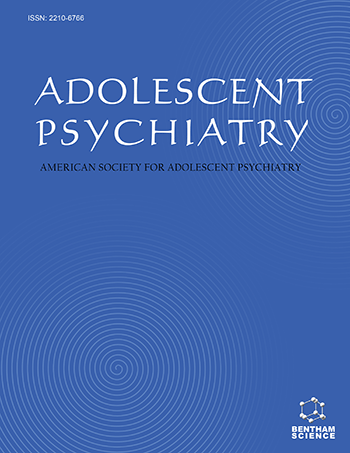Abstract
Interest in the effectiveness of psychological interventions in patients with psychosis has increased in the last 2 decades, and early intervention programs are increasingly common. PIENSA (Programa de Intervención en Psicosis Adolescente; Intervention Program for Adolescent Psychosis) is a clinical program and pilot study based on previous research into the efficacy of early intervention in preventing relapse and improving outcome in patients with first-episode psychosis.
We describe a psychoeducational intervention designed for adolescents with early-onset psychosis and their parents. The intervention is adapted from McFarlane’s Multiple Family Therapy model to our setting and population (adolescents treated in the Spanish public health system). It consists of 2 stages: an individual stage comprising 3 sessions and a subsequent group stage comprising 12 sessions. The total program lasts for 1 academic year (9 months).
We present the design of our program and our preliminary experience in a Child and Adolescent Unit in Spain.
Keywords: Adolescents, family intervention, group therapy, psychoeducational, psychosis, treatment.
Adolescent Psychiatry
Title:PIENSA: Development of an Early Intervention Program for Adolescents With Early-Onset Psychosis and Their Families
Volume: 2 Issue: 3
Author(s): Ana Ruiz-Sancho, Ana Calvo, Marta Rapado-Castro, Miguel Moreno, Carmen Moreno, Teresa Sanchez-Gutierrez, Cecilia Tapia, Guadalupe Chiclana, Pamela Rodriguez, Patricia Fernandez, Celso Arango and Maria Mayoral
Affiliation:
Keywords: Adolescents, family intervention, group therapy, psychoeducational, psychosis, treatment.
Abstract: Interest in the effectiveness of psychological interventions in patients with psychosis has increased in the last 2 decades, and early intervention programs are increasingly common. PIENSA (Programa de Intervención en Psicosis Adolescente; Intervention Program for Adolescent Psychosis) is a clinical program and pilot study based on previous research into the efficacy of early intervention in preventing relapse and improving outcome in patients with first-episode psychosis.
We describe a psychoeducational intervention designed for adolescents with early-onset psychosis and their parents. The intervention is adapted from McFarlane’s Multiple Family Therapy model to our setting and population (adolescents treated in the Spanish public health system). It consists of 2 stages: an individual stage comprising 3 sessions and a subsequent group stage comprising 12 sessions. The total program lasts for 1 academic year (9 months).
We present the design of our program and our preliminary experience in a Child and Adolescent Unit in Spain.
Export Options
About this article
Cite this article as:
Ruiz-Sancho Ana, Calvo Ana, Rapado-Castro Marta, Moreno Miguel, Moreno Carmen, Sanchez-Gutierrez Teresa, Tapia Cecilia, Chiclana Guadalupe, Rodriguez Pamela, Fernandez Patricia, Arango Celso and Mayoral Maria, PIENSA: Development of an Early Intervention Program for Adolescents With Early-Onset Psychosis and Their Families, Adolescent Psychiatry 2012; 2 (3) . https://dx.doi.org/10.2174/2210676611202030229
| DOI https://dx.doi.org/10.2174/2210676611202030229 |
Print ISSN 2210-6766 |
| Publisher Name Bentham Science Publisher |
Online ISSN 2210-6774 |
 20
20
- Author Guidelines
- Graphical Abstracts
- Fabricating and Stating False Information
- Research Misconduct
- Post Publication Discussions and Corrections
- Publishing Ethics and Rectitude
- Increase Visibility of Your Article
- Archiving Policies
- Peer Review Workflow
- Order Your Article Before Print
- Promote Your Article
- Manuscript Transfer Facility
- Editorial Policies
- Allegations from Whistleblowers
Related Articles
-
Culturally Informed Care of the Turkish-American Child, Adolescent, and Family
Adolescent Psychiatry Using Attachment Perspectives in Self Psychological/Intersubjective Clinical Work with Adolescents
Adolescent Psychiatry The Holocaust, War Trauma and Reconciliation: Commentary on the Special Section
Adolescent Psychiatry Helping Parents Promote Healthy and Safe Computer Habits
Adolescent Psychiatry Mind-Body Practices and the Adolescent Brain: Clinical Neuroimaging Studies
Adolescent Psychiatry Policy and Adolescent Tobacco Use Prevention
Adolescent Psychiatry Improvement in Cognitive Abilities, Mental and Emotional Wellbeing of Teenagers following a Meditation Retreat: An Open- Trial Pilot Study
Adolescent Psychiatry Cyber Cruelty: Understanding and Preventing the New Bullying
Adolescent Psychiatry Deliberate Foreign Body Ingestion and Hopefulness Across Clinical Settings: An Under-Appreciated, but Significant, Non-Suicidal Self-Injury
Adolescent Psychiatry Gang Involvement, Mental Health Difficulties and Exposure to Violence in 11-16-Year-Old School Students
Adolescent Psychiatry Editorial: Looking Beyond DSM 5, Effective Treatments for Traumatic Stress, and Coming to Terms with World War II in the Second and Third Generations
Adolescent Psychiatry Cyberbullying and Depression Among Adolescents in an Acute Inpatient Psychiatric Hospital
Adolescent Psychiatry Mother-Daughter Reunification in Adolescence: Another Trauma, Another Chance
Adolescent Psychiatry Special Invited Article Concussion, Sports and Psychiatry
Adolescent Psychiatry The Remote Monitoring of Smoking in Adolescents
Adolescent Psychiatry Matching Intervention to Need in Juvenile Justice: The CASII Level of Care Determination
Adolescent Psychiatry Measurement Matters in Evaluating Youth Antidepressant Effectiveness
Adolescent Psychiatry Vampires and Vamps: The Use of a Popular Metaphor in the Psychodynamic Understanding of Adolescent Conflict
Adolescent Psychiatry Commentary: Anonymous Encounters: Alcoholics Anonymous, Al-Anon, and Overeaters Anonymous
Adolescent Psychiatry Remembrance and Historicization: The Transformation of Individual and Collective Trauma and its Transgenerational Consequences
Adolescent Psychiatry

























